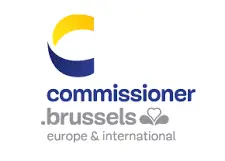Expats, welcome in Brussels
If you are moving to Belgium and you are planning to settle in the Brussels-Capital Region, you’ll be delighted to know that Brussels is an international city where you are sure to settle very quickly. Some say that you need time to grow to love Brussels. But with a bit of curiosity and some patience, you will come to realise it is a great place to live and work.
A multilingual international city
The Brussels-Capital Region is a melting pot of different cultures. There are two official languages (French and Dutch), but English is understood and spoken in many places. And the many international institutions in Brussels attract various foreign communities, so you will also find a wide range of products, media, schools and culture from abroad.
The Belgian diplomacy website provides information about External linkthe documents you need to come to Belgium.
Working in Brussels
To work in Belgium, non-European citizens need a External linkwork permit (single permit or work permit) to work as employees and a External linkprofessional card if they want to work as self-employed professionals. Many international businesses have offices in Belgium and employment agencies are well geared to expats. You can find more information in the 'Opens in new windowEmployment' section on this website.
If you would like to work for a Belgian employer, you will probably need to speak French, Dutch or both. Various organisations and language schools run language courses.
You have to join a mutual society to claim medical costs (after a qualifying period). It’s generally your employer who takes on the payment of your contributions to the Belgian social security system and your taxes. Visit External linkwww.securitesociale.be (FR/NL/DE) to find out what you are entitled to when you work in Belgium.
Practical questions
Several websites and agencies will be able to help you find a place to live in Brussels. Normally, rental contracts for houses and apartments in Brussels have a duration of 3, 6 or 9 years. You can apply for a reserved parking space for your removals van at the local police station.
You must register at your Opens in new windowcommune within eight days of arriving in Belgium and apply for a residence permit (don’t forget to take along your photos). Make sure you put your name next to your bell and on your letterbox, because the local police will drop by to check that you really are living where you say you are. After a couple of months the communal administration will ask you to come to pick up your Belgian residence permit.
External linkComing2Belgium is a website for people wishing to settle in Belgium. This website provides information over their rights to social security.
Something for everyone
There are so many cultural and leisure activities in the Brussels-Capital Region. For a brief introduction, see the External linkleisure pages on this website (museums, films with subtitles, concerts and more). If you wish to stay in contact with your own culture, you may be able to find a cultural centre. And if you would like to immerse yourself in the local community, you can take part in cultural activities or sporting activities close to your home.
Education and training
Opens in new windowBelgian education is varied and flexible. You can choose from several official networks (Catholic or community education) and private schools (which do not receive grants), as well as different methods of education (standard, Freinet, Montessori and more). In principle, official education is free at source (with the exception of textbooks) up to and including secondary school education (in Belgium, compulsory schooling continues until 18 years of age). Brussels is also home to several schools serving the international community. And there are many high-quality institutions providing higher education and academic and extracurricular education.
Expat Welcome Desk
The External linkExpat Welcome Desk of the Brussels Commissioner for Europe and International Organisations is a free, independent and public service. It offers administrative assistance to people who settle in the Brussels-Capital Region as part of their activities within and around the European and international organisations.
